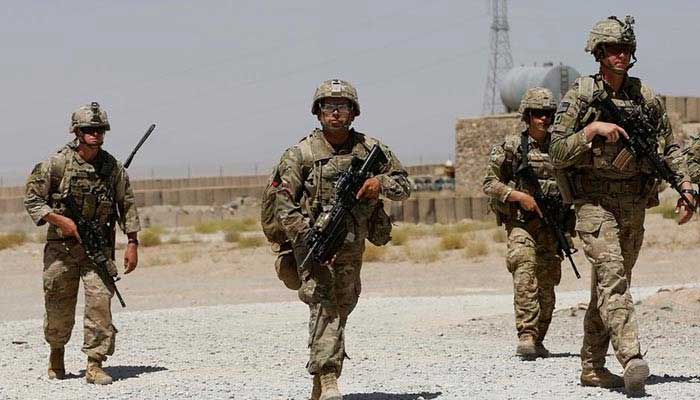Blog: Has the US learned from its experience in Afghanistan?
Leaving Afghanistan brings back flashbacks of the Vietnam war, when the US decided to leave the country in 1973
July 03, 2021

The United States promises to pull out its troops by September 11, thus ending America’s longest war. But what it leaves behind it is much uncertainty, not only in the US and Afghanistan but also in neighboring Pakistan.
Leaving Afghanistan brings back flashbacks of the Vietnam war, when the US decided to leave the country in 1973.
Like in Vietnam, Washington once again faces the possibility of exiting a country that could soon become entangled in a regional conflict. Another similarity is the Taliban’s unwillingness towards negotiations. In 1968, too, the North Vietnamese government made it clear that they would not participate in peace talks unless the US stops bombing Vietnam.
Read more: Taliban seize US forces' vehicles and weapons from surrendering Afghan troops
The Afghan war, too, like the Vietnam war, shattered the myth that the US was invincible.
However, there is one difference between Vietnam and Afghanistan. In Afghanistan today, it is not just about the US and the country it is leaving, there is also Pakistan, which has suffered the implications of war and conflict since the end of the Soviet-Afghan war.
There is a possibility that Pakistan can face similar repercussions of a conflict spill from Afghanistan, if it does not plan carefully.
The US hasn't achieved its goal of defeating the Taliban. Instead, the Taliban are now on the path to becoming the strongest political force in Afghanistan and a powerful player in the coming days. One of the main reasons why the Afghan peace process has failed is because the Taliban have refused to cooperate, knowing their strength on ground.
Afghanistan’s future: Lessons for India
Continuing US deployment in the region will not change this reality.
Martin Indyk, a scholar at the US-based Council on Foreign Relations, recently argued that “it is time for the US to find a way to escape the costly, demoralizing cycle of ….never-ending wars and grandiose objectives” in the Middle East. This withdrawal is looking more like an escape now.
In fact it has poked holes in the belief that victory can be achieved through only military means. As a report from the Center for American Progress stated: “The United States has numerous tools to vigorously defend its values and advance democracy, without seeking to impose it using force.”
For some, US President Joe Biden’s planned withdrawal is seen as the beginning of the end of the global war on terror and a nail in the coffin of “Bush’s Freedom Agenda”, which presented the idea that the world could be molded into being pro-American via force.
Bush himself is on record arguing that there needs to be “growth of democratic movements and institutions in every nation and culture, with the ultimate goal of ending tyranny in our world.” But what was deemed as tyranny is finally being seen as a fight not worth fighting for.
Afghan peace process: The challenges and opportunities ahead
Biden’s decision also highlights the willingness of the US to shift its focus from the post-9/11 world to current priorities, which include increasing military competition with China. US commentators have noted that the US now also wants to refocus on Russia and North Korea, which the US believes pose a bigger threat to the American homeland.
In the end, there is no denying that the withdrawal of the US troops has its consequences. There is expected to be a power vacuum in Afghanistan and then a power tussle to fill that vacuum.
Pakistan will likely be caught in the middle of the clashes, as it was post the Soviet-Afghan war, unless it moves towards a new approach, to not repeat the scenario of the 1990s.
Interestingly, history moves in circles, unless the circle of mistakes is broken.
Mahnoor Islam is a research associate at the Center for Law and Security in Islamabad.











